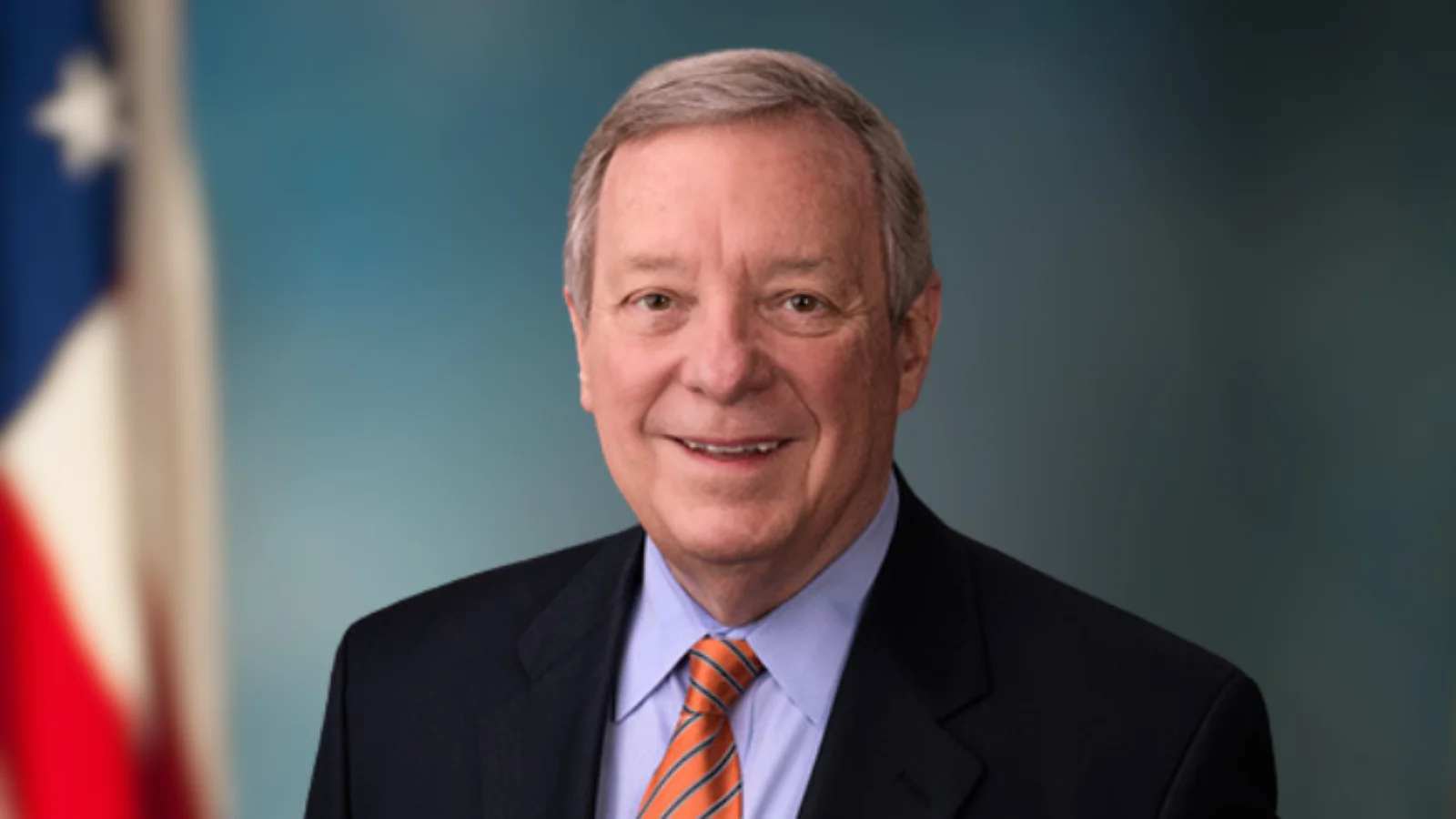U.S. Senate Democratic Whip Dick Durbin, who serves as Ranking Member of the Senate Judiciary Committee, questioned Andrew Tysen Duva during a nominations hearing regarding his appointment as Assistant Attorney General for the Criminal Division. Durbin focused on concerns about the current state of the Public Integrity Section (PIN) at the Department of Justice. The number of prosecutors in PIN has dropped from about 30 at the end of the Biden Administration to only two attorneys.
Durbin referenced a previous meeting with Duva, noting that Duva expressed support for PIN and its role in prosecuting public corruption cases. During the hearing, Durbin asked, “There is a longstanding requirement that prosecutions of public officials be reviewed by PIN’s career prosecutors to ensure that they are not politically motivated. Attorney General Bondi has reportedly eliminated this requirement. When we met, you told me that you thought PIN played an important role in the process.Do you agree that PIN prosecutors should review prosecutions of public officials?”
Duva replied: “Public corruption prosecutions have an absolute place—both in the U.S. Attorneys’ Offices and in the Criminal Division; and I will have discussions with Deputy Attorney General [Todd] Blanche because I believe the Criminal Division should have a footprint in those prosecutions in evaluating cases at the national level.”
Durbin also addressed concerns about political influence over criminal prosecutions under President Trump, specifically referencing indictments against former FBI Director James Comey and New York Attorney General Letitia James. He raised questions about how Duva would respond if pressured to pursue politically motivated charges.
“I said to my staff how impressive our meeting was, and they said, ‘what will he do when he gets the Comey call? What will he do as an 18-year veteran of the U.S. Attorney’s Office when a political figure in this Administration says this is what I want you to do? Prosecute this person. Whether it’s a Member of Congress or someone who has wronged the President.’ You said you’ve done the job the right way for 18 years and I have no reason to believe you have not. The question is, whether or not you’re going to stand by that when you’re faced with that moment. It could be a call from the White House, it could be a call from the Department of Justice, it could be a tweet by the President of the United States instructing you to prosecute an individual that you know there’s no evidence against. So, let me ask you, Mr. Duva, what will you do?” Durbin asked.
Duva responded that he would remain committed to his oath: “I will always do one thing: and that is [to] apply the facts to the law in any case.”
The hearing also included questions directed at Alexander Coker Van Hook, nominated for judge in Louisiana’s Western District Court. Durbin noted data showing Shreveport's murder rate surpasses Chicago's and asked Van Hook if violent crime was a problem there.
“Is violent crime a problem in Shreveport?” Durbin asked.
Van Hook responded generally that crime everywhere is an issue.
Durbin followed up: “Do you think you need the National Guard to fight crime in Shreveport, Louisiana?”
Van Hook replied,“I don’t think we need them, but they would be welcomed.”
Video footage and audio recordings from this committee session are available online.









